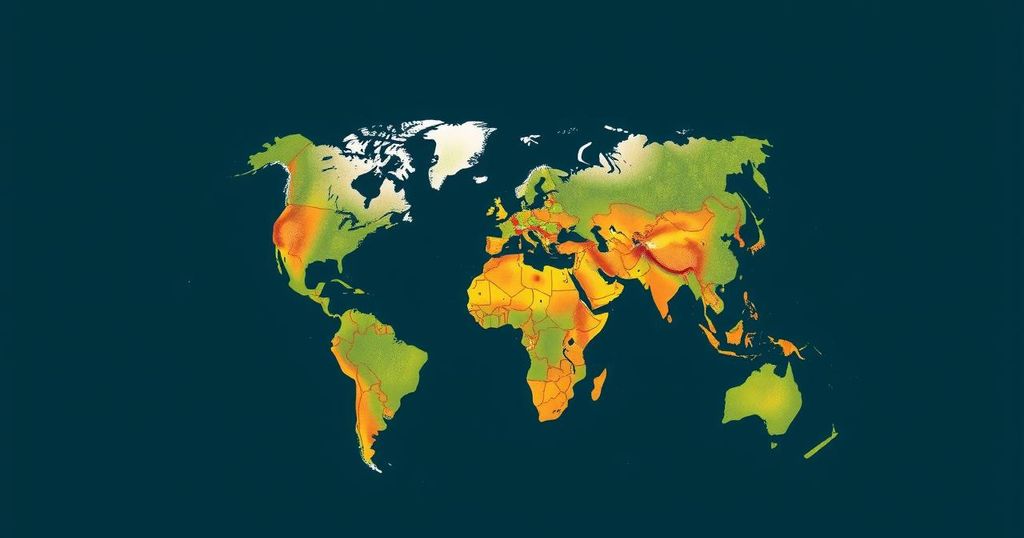Systemwide Approach Necessary to Combat Climate Change and Global Economic Challenges

As the Bretton Woods institutions reach their 80th anniversary, the need for a system-wide approach to combat climate change and restore global cooperation has become urgent. Despite historical progress in reducing poverty and promoting growth, contemporary challenges, particularly climate issues exacerbated by geopolitical tensions and pandemic repercussions, threaten this trajectory. The roles of both public institutions and the private sector are essential in developing effective solutions and strategies to address these pressing global crises.
The year 2024 commemorates the 80th anniversary of the Bretton Woods institutions, established post-World War II to oversee international economic transactions. While these financial entities have catalyzed economic growth and reduced poverty for many globally, including significant populations in China, India, and Indonesia, the landscape has been marred by financial crises that have kept numerous communities in poverty. Today, three critical issues jeopardize this 80-year trend of improving living standards. First, the degradation of global commons, which includes climate change, pandemics, and technological challenges, significantly disrupts the global economy. Second, the urgency of addressing these challenges is heightened by the slow pace of progress in collective action. Third, there is widespread acknowledgement that the response to these crises has been inadequate. The global economic framework has faltered in addressing these mounting challenges due to several factors. The number and complexity of issues surrounding global commons have proliferated, with climate change emerging as the foremost concern. Concurrently, increased geopolitical tensions have hindered effective cooperation, diverging from previous decades of supportive international relations that fostered growth through interconnected markets and trade. The impact of the COVID-19 pandemic has led to disruptions in trade and supply chains, exacerbating existing fragmentation in the global economy. Ongoing geopolitical conflicts, such as the war in Ukraine, have further strained international cooperation, resulting in heightened political tensions and protectionist tendencies. Despite the International Monetary Fund’s estimate that economic fragmentation could cost global GDP between two to seven percent, projections reveal that a substantial portion of future growth will originate from the Global South. However, these nations are also predicted to face significant adverse effects from climate change. Leveraging China’s critical role in combating climate change is essential, as the nation has achieved notable advancements in emission reduction and market adaptations. Furthermore, the involvement of the private sector is paramount to financing climate initiatives, with projected needs ranging between three to four trillion dollars annually, primarily derived from domestic resources and foreign investments. Identifying systemic shortcomings in governance, implementation, and accountability is critical to advancing climate resolutions. The existing frameworks, including the UN Framework Convention on Climate Change, lack a unified institution responsible for coordinating global climate policies and financial strategies. This gap underscores the pressing need for reform within the global financial system to enhance coordination and fiscal support. The debate surrounding the establishment of a new institution to address these gaps is complicated by geopolitical dynamics; reaching a consensus would likely prove challenging, and any new establishment would require considerable time to become effective. Recent technological advances provide avenues for managing carbon emissions effectively and equitably. Private sector participation is crucial, necessitating frameworks that enhance compliance and integrate environmental solutions effectively into corporate strategies. The utilization of global carbon trading schemes, the adoption of carbon taxes, and supportive policies for middle- and low-income nations are crucial measures to drive participation. Lastly, improved accountability mechanisms are necessary to ensure that corporate sustainability disclosures align with financial statements, thereby reinforcing the integrity of climate-related reporting. Both public and private sectors must engage collaboratively to address the overwhelming challenge posed by climate change, necessitating a comprehensive and coordinated approach moving forward.
As we approach the 80th anniversary of the Bretton Woods institutions, it is imperative to reflect on their role in shaping the international economic landscape. Established to regulate global financial transactions post-World War II, these institutions facilitated significant economic growth and poverty alleviation for many nations. However, as global crises such as climate change and geopolitical tensions threaten these gains, it has become crucial to assess the effectiveness of current strategies. This analysis emphasizes the necessity for a collective response and identification of systemic weaknesses within existing governance structures, specifically concerning climate change, to foster sustainable growth and economic stability.
In essence, the current global economic architecture faces unprecedented challenges in the realm of climate change and international cooperation. To sustain global growth, particularly for developing countries vulnerable to climate impacts, a system-wide approach that bridges gaps in governance, implementation, and accountability is critical. The collaboration between public and private sectors, alongside innovative financial instruments, is crucial to effectively mobilize resources and set effective climate strategies. Ultimately, addressing climate change demands a cohesive and coordinated response, underscoring the urgent need for reform within the international financial system.
Original Source: global.chinadaily.com.cn






